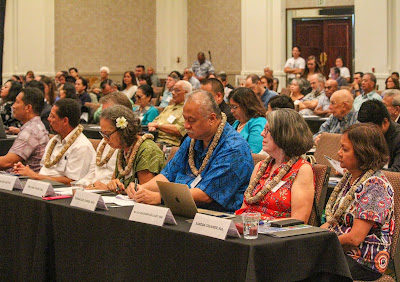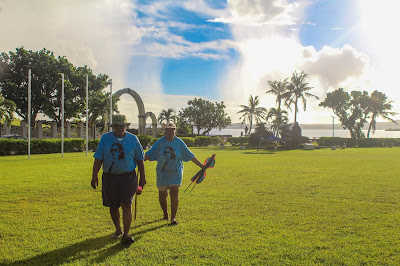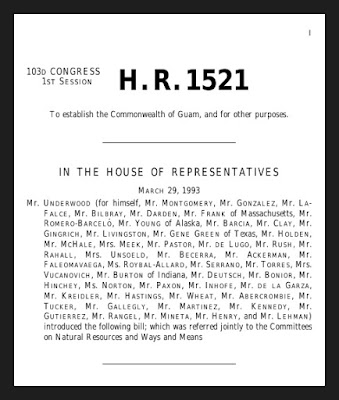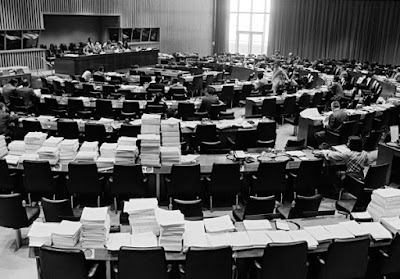Mungga Yu' ni Konstitution

I came across this protest sign in the archives of the Nieves Flores Guam Public Library in Hagåtña, while doing research on Guam's two previous Constitutional Conventions (1969-70 and 1977). Written in Chamoru, it translates to "I don't want the constitution." A few months ago for Fanchu! I spoke to former Senator Hope Cristobal who was part of the campaign to defeat the draft constitution in 1979. The notable figures who organized against the constitution include Robert Underwood, Marilyn Manibusan, the late Tony Leon Guerrero, the late Tan Clotilde Gould, Rosa Palomo, and the late Dr. Benit Dungca. As Underwood writes in his wonderful article "Dies Mitt: The Origin and End of Chamrro Self-Determination," the constitutional opponents "coalesced around the billboard “Munga ma’apreba i konstetusion ya ta mantieni i derecho-ta komo taotao Guam. Bota NO!” In English, this read “do no approve the constitution and maintain our rights as the people of Guam...




